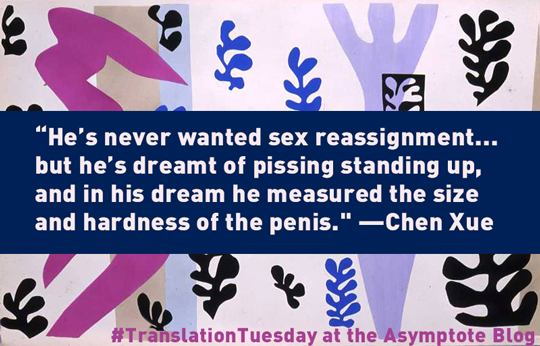This week’s dispatches feature an extended report from the Vietnamese Diaspora in homage to the late Nguyễn Huy Thiệp, who passed away in Vietnam aged seventy. In addition, we bring you news of the publication of Nishikawa Mitsuru’s diary in Taiwan and a plethora of current online events celebrating literature from the Czech Republic. Read on to find out more!
Thuy Dinh, Editor-at-Large, reporting from the Vietnamese Diaspora
Nguyễn Huy Thiệp, who catapulted into international fame during Vietnam’s Đổi Mới (Renovation) period, died on 20 March in Thanh Xuân District, Hanoi, Vietnam. He was seventy.
Born on April 29, 1950, Thiệp graduated from Hanoi University of Education with a history degree in 1970 and was sent to Sơn La—Vietnam’s northwestern mountains—to teach communist cadres. While there, he absorbed local Hmong folklore, Vietnamese poetry, translated selections from modern and classical Chinese literature, Dostoyevsky, Gogol, Gorky, Camus, Goethe, Tagore, Neruda, and the Bible.
From 1986 to 1991, Nguyễn Huy Thiệp’s short stories were widely read and debated both in Vietnam and abroad for their startling break from social realism. His most controversial—which can be read as nesting narratives—were “Vàng Lửa” (Fired Gold), “Kiếm Sắc” (“Sharp Sword”), and “Phẩm Tiết” (“Chastity”). These stories employ decentralized, conflicting points-of-view, vernacular language, and spare dialogues to render complex portraits of established historical figures such as the poet Nguyễn Du, and Emperors Quang Trung and Gia Long. The works embody Thiệp’s signature themes: the relationship between the artist and the state, the porous border between trust and betrayal, and the concept of chastity as it relates to sexual power, ideological orthodoxy, and political expediency.
The era of open expression was short-lived. Thiệp’s ambiguous, scatological tales were considered too destabilizing to the Communist view of Vietnamese history. Accused of heresy, overnight Thiệp became a de-facto dissident. The editor Nguyên Ngọc, his literary mentor, was also fired from Văn Nghệ (Literature and Art) Magazine—where his works first received a nurturing reception. To sustain his livelihood, Thiệp made ceramic art and managed a restaurant serving wild game.
He kept a low profile but continued to write and publish short stories. His oeuvres at this juncture—a hybrid form of literary homage and Dadaist musings—were considered too insular to merit attention. “As The Crane Ascends It Gives a Startled Cry” (“Hạc Vừa Bay Vừa Kêu Thảng Thốt”) is an allegory about mortality, missed opportunity, and “the pale glimmer” of poetic fame. The protagonist in “A Vietnamese Lesson” (“Bài Học Tiếng Việt”) posits that the compound word tâm hồn (soul) in Vietnamese, coming from an impoverished lexicon, is sadly deprived of affiliations to sexual organs (forthrightness) and yellow traffic signal (moderation/doubt).
Thiệp was awarded the Chevalier Insignia of France’s “Ordre des Arts et des Lettres” in 2007, and the Premio Nonino Prize by the Italian government in 2008. At his death, his legacy consists of some fifty short stories, a novel, seven plays, and a collection of essays called A Net to Catch The Birds (Giăng Lưới Bắt Chim). READ MORE…



